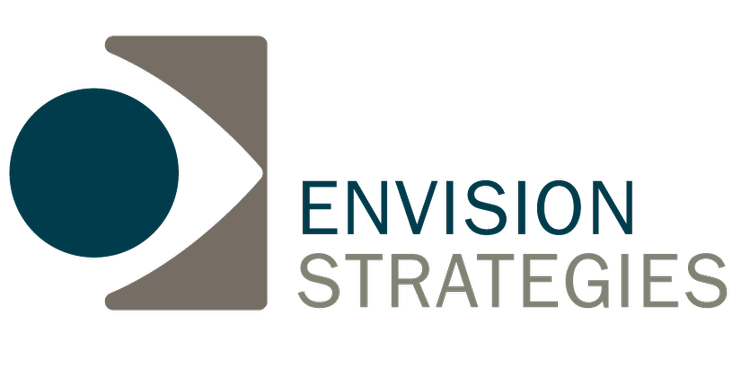“Sometimes the best career moves are the ones that push you into unfamiliar territory. FEED 2025 was definitely one of those experiences. ”
Walking into FEED 2025 in San Diego, I'll be honest: I had no idea what to expect. After spending years on the operations side of foodservice and just over a year into my consulting journey at Envision Strategies, this was my first conference as a consultant rather than an operator. The shift in perspective was both exciting and a little intimidating.
Why FEED?
Coming from operations management, I'd always been curious about the design side of our industry. As a consultant, I work on RFPs, master plans, operational planning, and meal plan studies, but I wanted to understand what happens before and after our work. I wanted to see the design process that brings concepts to life. FEED promised to walk us through the entire project lifecycle, and I figured that would give me the missing piece of the puzzle.
And honestly? It delivered beyond my expectations.
The Learning Curve
One of the things that struck me most was how accessible the FCSI mentors were throughout the workshop. Industry veterans who I'd only known by reputation were leading sessions, genuinely interested in sharing knowledge and answering questions. There's something powerful about that kind of mentorship culture. It reminded me why I love this industry.
The educational programming was incredibly comprehensive. I finally was able to better understand those floor plan drawings I often see in my programming work. Before, they were just lines and symbols on paper; now I can actually visualize the flow and functionality behind them. The session on schematic design was particularly valuable. It's one of those terms you hear thrown around, but seeing the actual process unfold gave me a completely new appreciation for the complexity involved.
What really shocked me was learning about all the steps it takes for a design project to go from initial idea to actual construction. Coming from operations, where you're dealing with the finished product, I had no clue about the intricate dance between conceptual design, design development, construction documents, and everything in between. The number of touchpoints, revisions, and coordination required is staggering.
Hands-On Learning
The collaborative workshop approach was excellent. There's something about taking theoretical concepts and immediately applying them with other attendees that makes everything click. Working through design challenges with architects, designers, manufacturers, and other consultants gave me insights I never would have gained sitting in a traditional lecture.
The equipment sessions were incredibly valuable for my daily work too. Learning about the latest trends, innovations, and technology isn't just academic for me. This is information I can use immediately when advising clients.
These collaborative sessions reminded me why I made the transition from operations management to consulting in the first place: I love solving complex problems with people who are as passionate as I am. But now, instead of just solving today's operational issue, I'm helping shape tomorrow's dining experiences.
The Power of Networking
If I'm being completely honest, the networking and social events were my favorite part of the entire conference. The mix of structured learning and social opportunities created the perfect environment for genuine connections. Whether it was over dinner with amazing bay views or during the more casual evening activities, these weren't just professional networking opportunities. They were genuine connections with people who share the same passion for creating exceptional foodservice experiences.
I walked away with contact information, sure, but more importantly, I gained a deeper understanding of how our work at Envision fits into the broader ecosystem of foodservice design development. It's one thing to write program specifications for a project; it's another to understand the design constraints and opportunities that will ultimately bring those specs to life.
Looking Forward
This conference reinforced something I've been thinking about since making the transition to consulting: the importance of stepping outside your comfort zone. Over a year ago, I was focused on day-to-day operations. Now I'm thinking about strategic planning, design integration, and industry trends.
FEED wasn't just professional development. It was a reminder of how much I still have to learn.. I'm already looking forward to future conferences, not just for the knowledge but for the opportunity to continue building relationships with the incredibly talented people in this industry.
San Diego was beautiful, but the real value was in the conversations, the learning, and the connections. For anyone considering attending FEED, especially if you're newer to the consulting side like I am, I can't recommend it enough.
Sometimes the best career moves are the ones that push you into unfamiliar territory. FEED 2025 was definitely one of those experiences.



